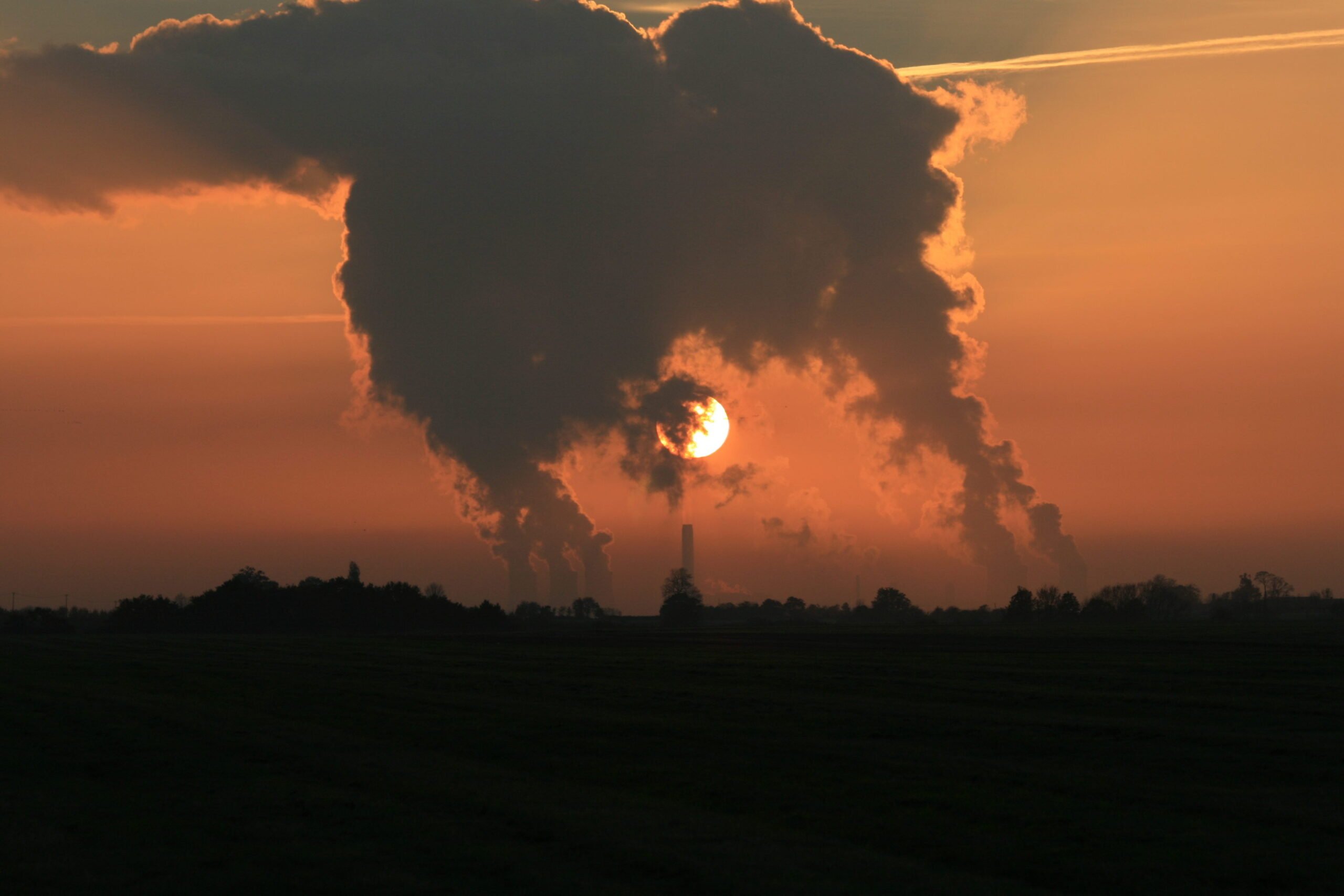

Economy
The story of unburnable carbon
Analysis from one group of financial experts could dramatically change the energy landscape for the better – but our communication needs to improve before it can.
This article originally appeared in Blue & Green Tomorrow’s Guide to Sustainable Clean Energy 2014.
On August 28, 1963, Martin Luther King Jr stood on the steps of Washington’s Lincoln Memorial and told 250,000 people about his dream of a more equal society. His speech is considered one of the most powerful in human history and his visions of black children joining hands with white children in unity inspired an entire generation.
A key factor in its influence was that people knew first-hand about the alternative. King was telling them his dream; but they already knew the nightmare – the segregation, the oppression. When it comes to climate change – the 21st century’s defining challenge – this couldn’t be further from the truth.
This is something Anthony Hobley knows all too well. Chief executive of the London-based thinktank the Carbon Tracker Initiative since February, he and his colleagues work to translate the complex climate science into something tangible and understandable for the financial world. Their ground-breaking 2011 report, Unburnable Carbon, estimated that as much as 80% of known fossil fuel reserves cannot be burned if we want to tackle climate change. Suddenly, they had investors’ attention.
“If you just tell people there is a massive, complex problem, the psychology is to switch off to protect yourself from the stress”, Hobley says, sitting in a London café at the foot of the Shard.
“We’ve done the climate nightmare and that doesn’t work. We’ve done the green dream and that doesn’t work. We need some great leaders, great communicators, who find a powerful way to combine the two in language that people understand.”
Bill McKibben, the environmentalist and author, communicated Carbon Tracker’s concept to the masses in his 2012 Rolling Stone article – Global Warming’s Terrifying New Math – that really gave rise to the divestment movement. Since then, universities, pension funds and other major investors have pledged to take their money out of oil, gas and coal – most of them with Carbon Tracker’s analysis as their motivation.
For Hobley, while this is clearly useful in furthering the conversation, divestment is not the sole answer. “You cannot practically divest from energy overnight. We’re more about a mainstream discussion, which is about managing the climate risk and allowing for a managed deflation of the carbon bubble.”
Hobley himself spent 25 years as an environmental lawyer. The skills he had picked up in this time were described as the “perfect amplifier” to Carbon Tracker’s existing talent pool when he was unveiled as chief executive last December. He has come a long way and jumped many hurdles in his career.
He couldn’t read or write until he was nine. But he is proudly dyslexic. Like the Bransons, Da Vincis and Einsteins of this world before him, Hobley sees the condition as a gift. His dyslexia thrust him down a very academic route, including postgraduate chemistry research at Cambridge. Despite holding a first-class honours degree he realised his future was in another “more meaningful” field.
He became interested in law and started going to some of the early lectures on modelling climate change. Putting the two together – a “powerful combination”, he says – he embarked on a new career in environmental law.
Much of his work for the next few years focused on issues like mergers and acquisitions liability, waste and contaminated land, but his passion was always with climate change. He spent the following two decades working at a range of leading law firms – Nabarro, CMS Cameron McKenna and Baker & McKenzie – and with his mentor James Cameron at Climate Change Capital.
In 2007, he moved to Norton Rose Fulbright – based in London and then Sydney – with a mandate to build a global climate change practice, and in 2009 worked with the Lithuanian government at the now infamous Copenhagen climate change negotiations, when world leaders tried, and failed, to agree on a global deal on cutting back greenhouse gas emissions. Hobley says, “Like many people, I went into extreme ‘counselling’ and soul searching after Copenhagen. We all went in with such optimism and such hope – and that was obviously so cruelly dashed against the rocks that it took a bit of time to recover.”
He started at Carbon Tracker in February. Of his decision to move away from law, he says, “I realised that this was one of those critical times. If you really understand what’s at stake with climate change and the fact that we have fortuitously been given a second bite of the cherry with [the Paris climate negotiations, the follow-up to Copenhagen] in 2015, you kind of felt you want to be somewhere to make a difference.”
He maintains that the climate change movement’s “biggest failure” is its communication of the science. It hasn’t made it understandable in everyday language or relevant now for most people, he argues.
“Most people’s brains are wired to deal with life as it is now over the next 12 months or at most two years, whereas I think many of us in the climate movement have a longer horizon, we’re weird to most people. In evolutionary terms, we’re the human canaries I guess.
“What I saw that was so exciting about Carbon Tracker is they had found a way to make this relevant to their community – the financial community – in their language. They had used basic financial analysis in a way that I hadn’t really seen done in the climate movement before.”
The way investors react to Carbon Tracker’s analysis will likely shape how the threat that is climate change plays out. Many are divesting; many others are actively engaging with fossil fuel firms to get them to consider these climate risks – but most, so far, are not.
As for Paris next year and what the world’s response to climate change will look like after that, Hobley says there are only three scenarios. The first is the goldilocks scenario, whereby strong policy allows for an orderly low-carbon transition at relatively low-cost. There would be few ‘stranded assets’ – stocks that are essentially worthless – in this scenario, like Carbon Tracker is currently forecasting, because investors would see the risks in advance and act upon them.
The second outcome is the nightmare – a world 3-6C warmer, and rising, which Hobley says is “catastrophic, existential, game over”. He adds, “If we allow that to happen, this will be the most hated generation that ever lived.”
The third scenario – which is most likely in Hobley’s eyes – sees the world leaving climate action until the last possible moment and then throwing everything at it as we did in the financial crisis. Whether this will be spawned by some severe weather event, disruptive technological change or a financial shock, he is unsure, but this scenario will be massively more expensive than the first. This is where stranded assets and systemic risk raise their ugly heads.
Carbon Tracker’s analysis helps connect these three scenarios with the people with the most power to do something about it – the investors. But it cannot stop there. We need similar translations into industries like retail, tourism, advertising, education, engineering and medicine. We need films about climate change – and not just disaster movies – and we need people to write fiction and songs about it.
Martin Luther King’s place in history is assured because he made the issue of civil rights relevant to everyone. And crucial to our future is making climate change relevant to everyone. Creating a new dream is in everyone’s best interest.
www.carbontracker.org
Photo: bugdog via Free Images
Take our 2014 reader survey and you could win an iPad, Kindle or donation to a charity of your choice.
Further reading:
Shell ‘underestimating’ climate change risks to investors
New ‘fossil free’ investment index boosts divestment movement
Investing in fossil fuels is ‘a bet on the future’
Carbon Tracker’s latest analysis is a warning to fossil fuel investors everywhere


 Environment12 months ago
Environment12 months agoAre Polymer Banknotes: an Eco-Friendly Trend or a Groundswell?

 Features11 months ago
Features11 months agoEco-Friendly Cryptocurrencies: Sustainable Investment Choices

 Energy11 months ago
Energy11 months agoThe Growing Role of Solar Panels in Ireland’s Energy Future

 Energy12 months ago
Energy12 months agoHow Renewable Energy Can Help Combat Climate Change, According to Indra Energy





























